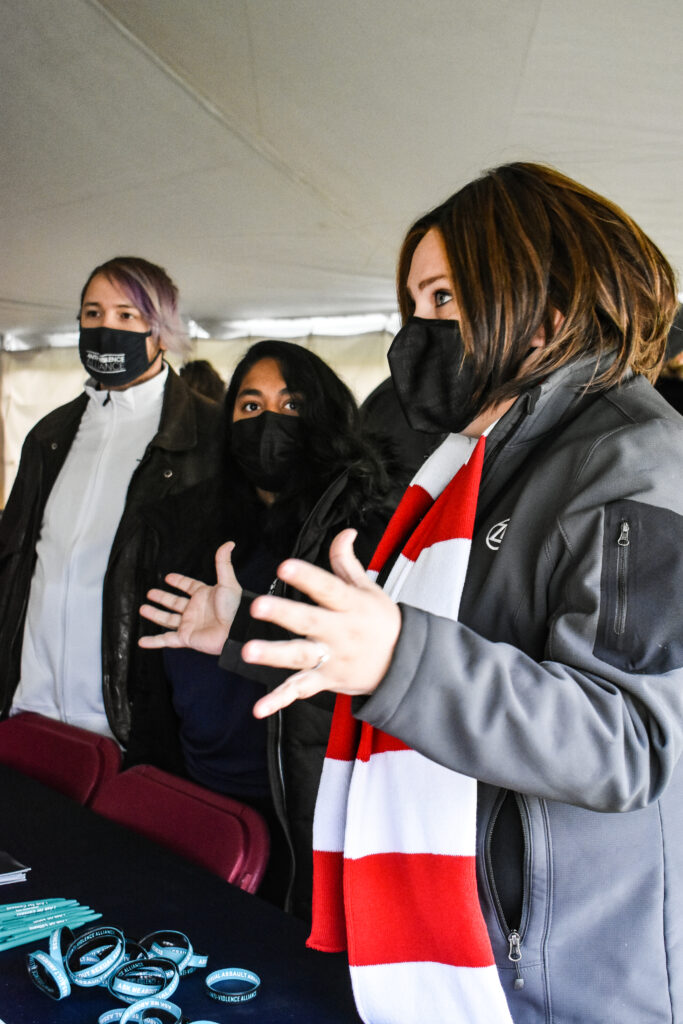
Domestic Violence Awareness Month may be over, but the Anti-Violence Alliance’s (AVA) work is nowhere near done.
The AVA is an organization made up of faculty and students that is focused on making campus a safer place by educating students about healthy relationship dynamics, domestic violence and how to not be a bystander.
The organization hosts seminars throughout the year that teach students about basic relationships and consent information, such as the required presentation incoming students attend and a bystander intervention seminar that gives students the tools to safely intervene in situations to create a safer campus.
Throughout the rest of the year, the AVA ties its work in with the different awareness months and hosts informational tabling sessions, workshops and events. Last month, the organization held a candlelight vigil in remembrance of domestic violence victims for Domestic Violence Awareness Month.
All of these workshops, tabling events and seminars are put on in hopes of opening the conversation on violence on the college campus.
Raven Hills, the OBW project director who oversees the interpersonal violence prevention work on campus, says that statistically students in college experience higher rates of violence than students who are not in college.
“Per capita, college-age women experience the highest rates of domestic violence,” Hills said. “Men in college experience the highest rates of sexual assault. There’s a high proportion of people who are experiencing these crimes while they are in college, and we need to be able to talk about these things more.”
According to RAINN, an anti-sexual violence organization, among undergraduates, 26.4% of females and 6.8% of males experience rape or sexual assault through physical force, violence or incapacitation.
Hill says the more we talk about violence, the more normalized these conversations will become. Most individuals who experience violent crimes want to sweep it under the rug and not talk about it because, most times, it brings about shame.
“Someone has taken away something from you,” Hill said. “They have taken your power, they have taken your control, they have taken your sense of autonomy, and that is so isolating.”
Conversations about violence are never easy to have, especially with professionals. By providing resources and information about how to confront violence, talk to victims of violence and, ultimately, get them help in the right way, the AVA hopes that students will have more frequent conversations with each other.
Jen Zamarron, the violence prevention coordinator, says having these presentations made and conversations started between students is important, as the subject is not often talked about. Zamarron said an important piece as to how the AVA works is through these peer-educated moments.
“It’s done peer to peer because there’s more buy into it,” Zamarron said. “It’s easier to take information from someone your own age or similar to your own age than from someone closer to your parents’ age.”
Once these conversations have started between students, and they get used to talking about difficult situations that have happened to them, the AVA is there to then provide resources.
According to Zamarron, a student who has gone through a difficult situation can receive counseling, be connected to Big Rapids confidential resources like WISE and the AVA can help with reporting and advocacy.
Zamarron also said that the Title IX office can help students as well after a situation has occurred. They are able to move a student into a different dorm if living on campus, help switch their classes and provide many other options in order to help make a student feel more comfortable on campus.
Students who would like more information on violence, how they can help prevent it on campus and potentially guide others to resources can head to their website at fsuantiviolence.org. Students can also go directly to their offices at Birkham for more confidential information or guidance.
